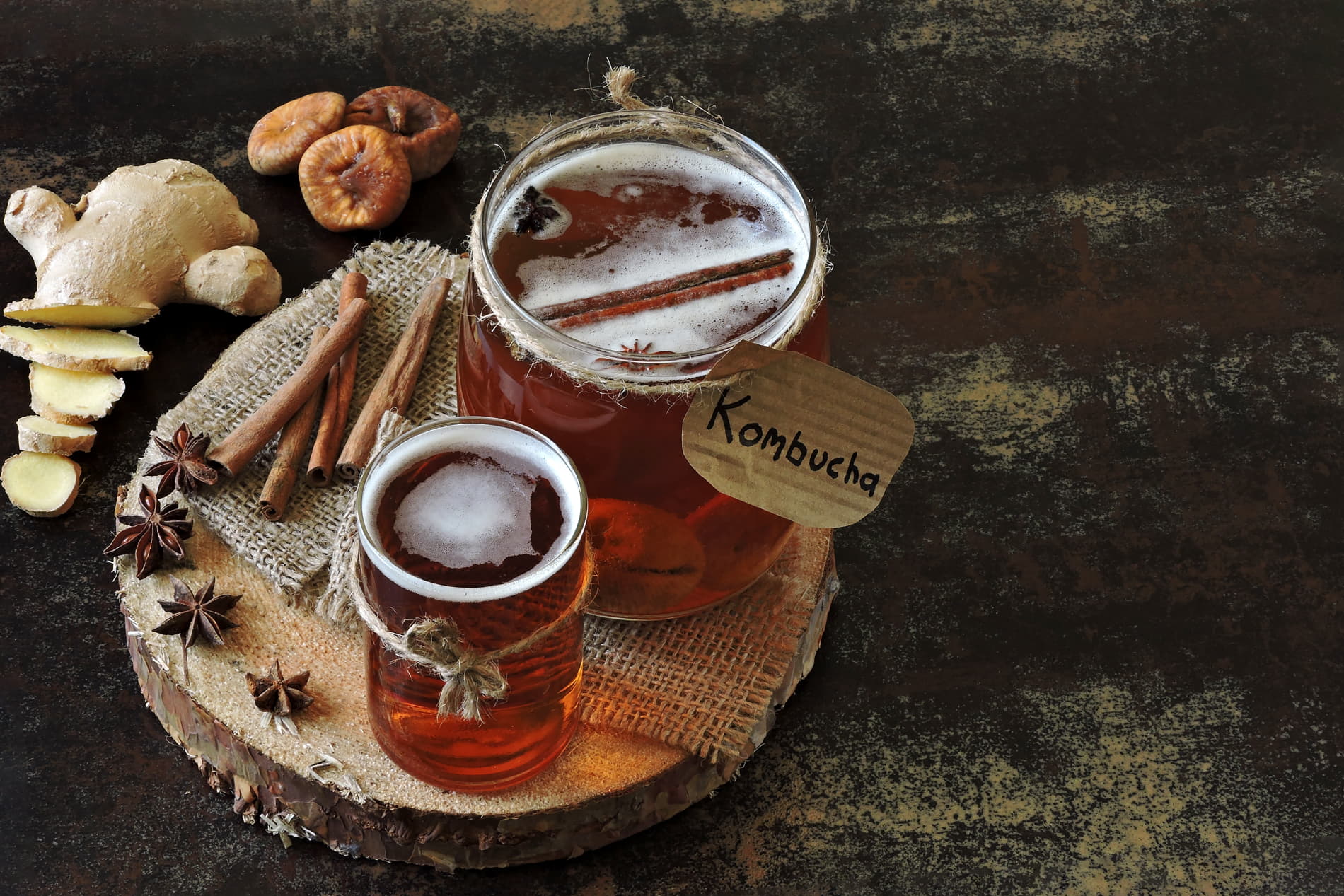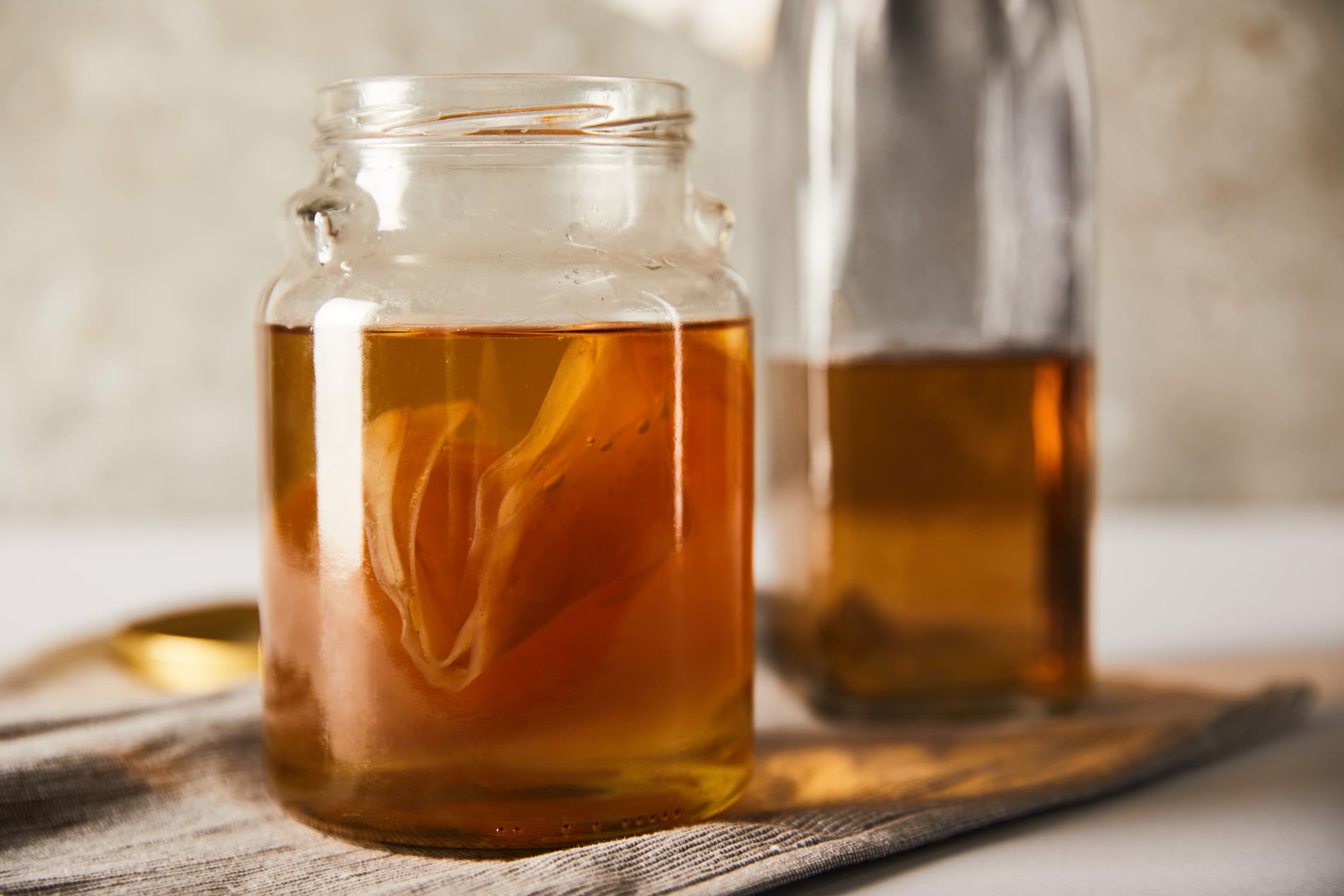Learn about the benefits of kombucha
If a few years ago the trendy healthy drink was macha tea or chai tea, this year the latest trend in natural soft drinks is kombucha. Have you still not heard of the benefits of Kombucha? In Consum, we’ll tell you what it’s all about, how it’s prepared and how the consumption of this drink can improve your health?
TRIED AND TESTED
Share

What is kombucha?
Kombucha is a sweet and fermented infusion, which results in a natural soft drink. The main ingredient of this drink is tea, preferably black or green, which is subjected to, together with the sugar, to a process of fermentation. This natural fermentation of tea and sugar is carried out by a symbiotic colony made up of beneficial bacteria and yeasts called scoby.
This traditional Chinese drink arrived in Europe at the beginning of the 20th century, where it was discovered that the yeast that this drink is made from is a fungus.
Kombucha: preparation
The process of making kombucha tea is very similar to making sauerkraut or yoghurt, as it consists of letting the infusion ferment for between fourteen and twenty days. During this time, the fungus that forms is able to convert the polyphenols in tea into other organic compounds that encourage its growth and prevent other microorganisms from developing.
Whilst this infusion is fermenting, the scoby mushroom consumes almost all the sugar and produces bubbles that make kombucha tea a healthy, natural and delicious soft drink.
Main ingredients of kombucha:
- Purified or filtered water
- Black or Green tea
- Sugar
- Scoby mushroom
- Organic and fresh ingredients that will give the flavour to the drink: apple, red fruits, pineapple, etc.

Kombucha: benefits and drawbacks
Kombucha benefits
The fermentation process of kombucha, together with the organic and natural ingredients that it’s made of, make this drink an organic and healthy option, with beneficial properties for both the immune system and the digestive system, and also… It provides the body with extra energy! It contains B vitamins
- It contains low amounts of residual sugar, making it a healthier option than some traditional soft drinks.
- Thanks to its high probiotic content, it helps to balance the intestinal flora and regulate intestinal transit. It provides minerals obtained from tea.
- Its antioxidant content helps to strengthen the immune system.
Kombucha drawbacks
Kombucha tea, like all soft drinks, also has some drawbacks.
- This drink is made with tea leaves and therefore, contains theine, so if you have a sensitive stomach or suffer from any intestinal disease, it is not recommended to have it.
- It is also not recommended to drink kombucha during pregnancy or while breastfeeding since, to maintain its probiotic properties, this drink is not pasteurised and contains a minimal amount of alcohol from the fermentation process. Although this amount is so small that kombucha cannot be considered an alcoholic beverage.

The risks of making Kombucha at home
Although it seems that this drink is very easy to make at home, homemade kombucha can pose health risks if it is not prepared correctly.
- At home, professional hygienic conditions free of microorganisms cannot be guaranteed.
- Many homemade kombuchas are made with a store bought scoby and that can harm the body if it is not well prepared.
- At home it is very difficult to control the proper fermentation of kombucha tea, since it is difficult to know the exact precise amount of alcohol that has been generated in the fermentation and if the harmful bacteria have been eliminated correctly. If this is not properly controlled, the risk of poisoning is much higher.
At Consum we advise you to avoid unnecessary risks and buy your kombucha at your trusted supermarket. This way, you will ensure that it has passed the necessary quality controls.






